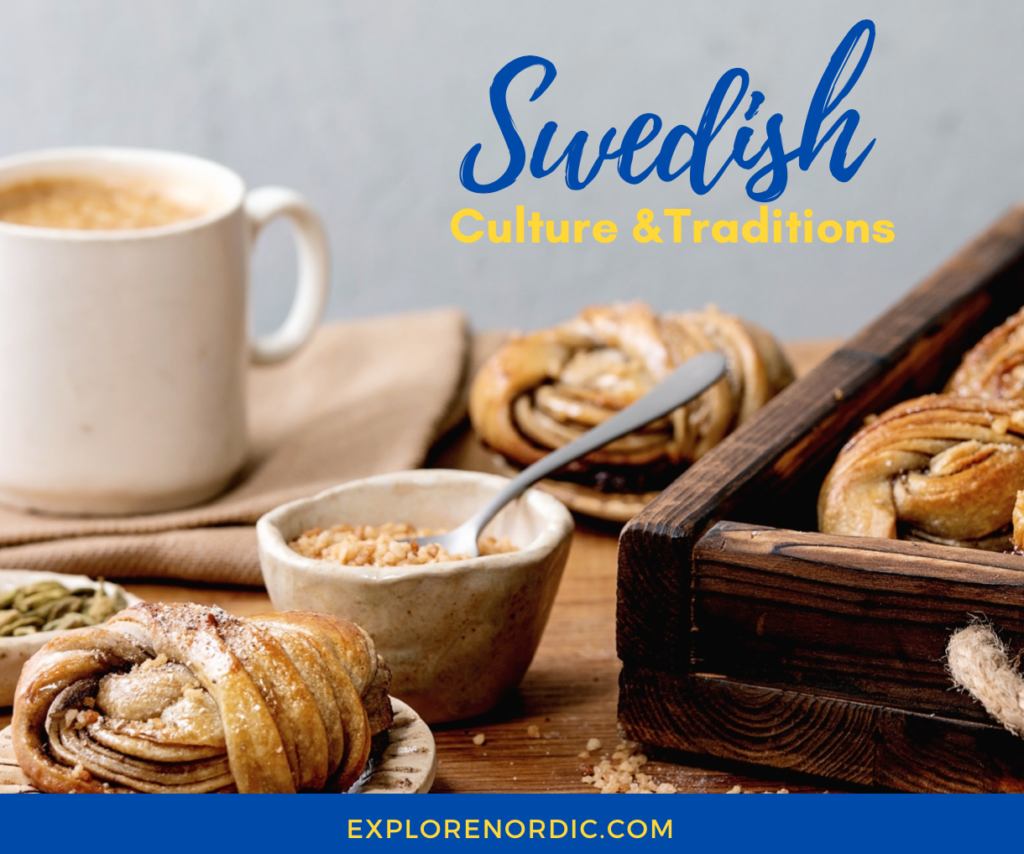Swedish Culture and Traditions. Sweden, a Scandinavian country known for its picturesque landscapes, has a rich cultural heritage that spans back centuries. From its ancient Viking past to its modern-day innovative and socially progressive society, Sweden has much to offer in terms of cultural traditions and customs.
In this blog, we will explore some of the most important aspects of Swedish culture, including its food, holidays, and customs. We will also take a closer look at some of the unique traits of the Swedish people, including their need for space, love of nature, and commitment to social equality. Whether you are planning a trip to Sweden or simply curious about the country’s cultural heritage, this blog will provide a fascinating glimpse into one of Europe’s most vibrant and dynamic societies.
Swedish Culture – Personal Space
Personal space is important in Sweden, so it’s best to maintain a respectful distance when interacting with people.
In Sweden, personal space is considered important, and individuals tend to value their personal space and privacy. Swedes generally prefer to maintain a comfortable distance of at least an arm’s length from others when interacting in public spaces. This can be on public transportation or in a queue.
While Swedes may not be as physically affectionate as people from some other cultures, they do engage in casual social interaction with acquaintances and strangers. This happens particularly in informal settings such as bars or cafes. But, when you have connected with a Swede, they can be very social and affectionate.
Swedish Culture Environmentally Friendly

Swedes are environmentally conscious and prioritize sustainability, so it’s important to be mindful of littering and waste.
Sweden is a country that is highly committed to sustainability and environmental protection. The Swedish government has set ambitious targets for reducing greenhouse gas emissions, increasing renewable energy production, and promoting sustainable development in all areas of society.
One of the ways that Sweden promotes sustainability is through its strong focus on waste management and recycling. The country has one of the highest rates of recycling in the world, with over 99% of household waste being recycled or used for energy production.
Sweden has also invested heavily in waste-to-energy technologies, which convert non-recyclable waste into electricity and heat.
In addition to waste management and recycling, Sweden has made significant investments in renewable energy and energy efficiency. The country has set a goal of being carbon neutral by 2045, and it is rapidly expanding its production of wind and solar power.
Sweden also has a strong tradition of promoting sustainable transportation, with a well-developed public transportation system and a focus on promoting cycling and walking as modes of transportation. The country has also introduced policies aimed at reducing the use of cars and promoting the use of electric and hybrid vehicles.
Take Your Shoes off by the Door

Shoes are typically removed when entering someone’s home, and it’s considered impolite to walk inside with outdoor shoes. This is considered a cultural norm and a sign of respect for the cleanliness of the home.
Swedish homes are often designed with this practice in mind, with entryways or mudrooms where shoes can be removed and stored. It is also common for Swedes to wear slippers or indoor shoes inside the home to keep their feet warm and clean.
Taking off shoes before entering the home is seen as a way to maintain a clean and hygienic living environment, as well as a way to show respect for the host’s home. It is also seen as a practical way to keep floors and carpets clean and free from dirt and debris.
Work-life Balance
Swedes value work-life balance and typically take a lot of vacation time, so it’s important to respect work hours and boundaries.
Work-life balance is a key priority in Swedish culture, and the country is known for its progressive policies aimed at promoting work-life balance and improving the quality of life for workers.
Swedish workers enjoy a high degree of flexibility and autonomy in their work, with many companies offering flexible working hours and the ability to work from home or remotely. In addition, the Swedish government mandates a minimum of five weeks of paid vacation time per year, as well as generous parental leave policies that allow parents to take time off work to care for their children.
Swedish workers also benefit from a strong social welfare system that provides support, including healthcare, child care, and elder care. This help reduces the stress and burden of managing family responsibilities while also working full-time.
Work-life balance is highly valued in Swedish culture, and the country has implemented a range of policies and programs to support this goal. As a result, Swedish workers generally enjoy a high quality of life and a good balance between work and personal life.
Vacation Time in Sweden

In Sweden, vacation time is highly valued, and the country have some of the most generous vacation policies in the world. The minimum amount of paid vacation time for workers in Sweden is five weeks per year, which is in addition to 16 public holidays.
Many Swedish employers offer even more vacation time, with some companies offering up to six weeks of paid vacation time per year.
Vacation time is seen as an important aspect of work-life balance in Swedish culture, and it is not uncommon for workers to take their full allotted vacation time each year. Many Swedes use their vacation time to travel, spend time with family and friends, or simply relax and recharge.
Parental Leave in Sweden
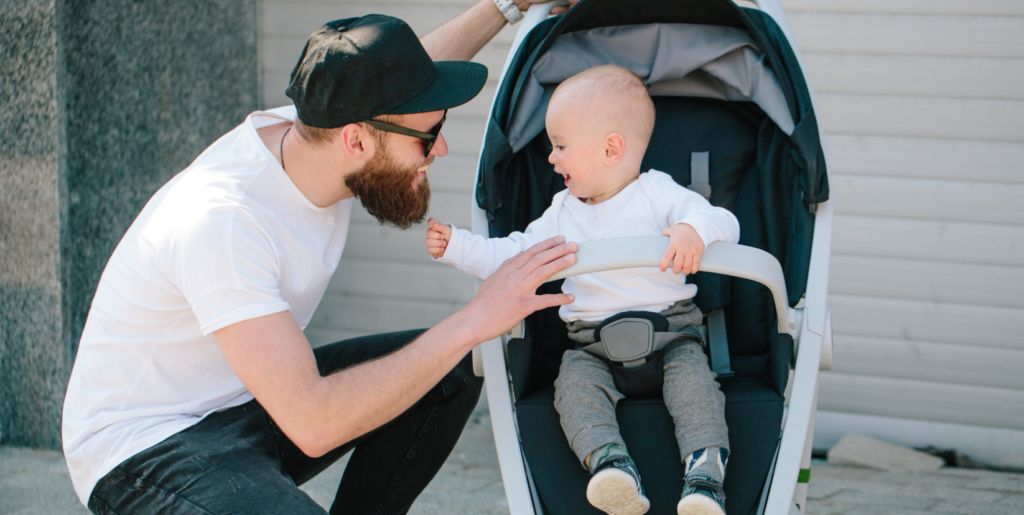
Sweden has one of the most generous maternity leave policies in the world, reflecting a strong commitment to supporting families and promoting gender equality in the workplace.
In Sweden, parents are entitled to up to 480 days of parental leave, which can be shared between the mother and father. This allows parents to take time off work to care for their children during their early years, without sacrificing their careers or financial stability.
Swedish parental leave policies are designed to promote gender equality and support families in the transition to parenthood. By providing generous paid leave for both mothers and fathers, Sweden has created a culture in which parenting and work are seen as complementary, rather than competing, priorities.
Swedish Culture and Traditions – Fika
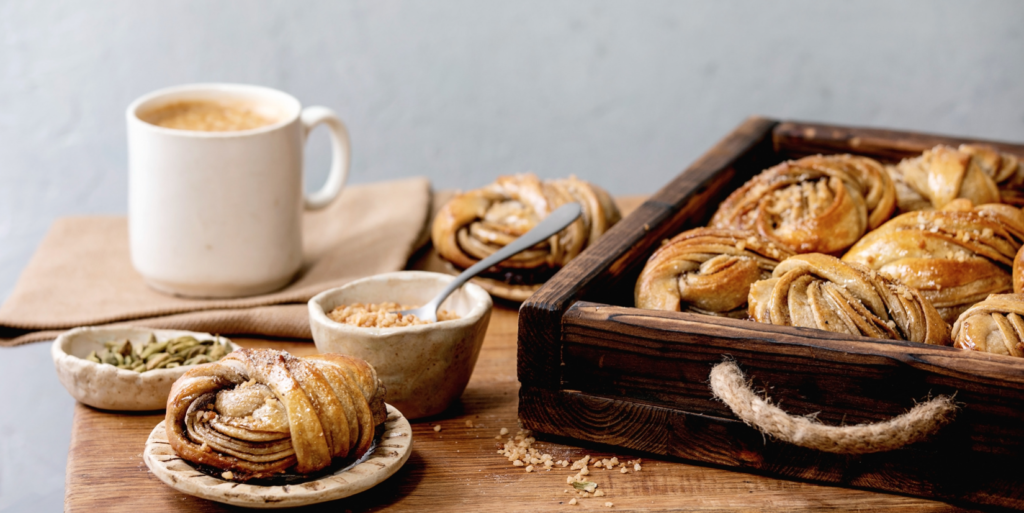
It’s common for Swedes to take breaks during the day for fika, which is a time to relax and enjoy a cup of coffee or tea with a pastry.
“Fika” is a Swedish term that refers to a coffee break, often accompanied by pastries or other baked goods. In Swedish culture, fika is a common and important part of daily life, and it is not uncommon for colleagues to gather for fika breaks throughout the workday.
Fika at work is a social tradition that allows colleagues to take a break from work, socialize, and connect. It is seen as a way to build relationships, boost morale, and foster a positive and inclusive workplace culture.
Fika breaks are often scheduled throughout the day, with many workplaces designating specific times for fika breaks each morning and afternoon. Colleagues gather in a common area, such as a break room or kitchen, and enjoy coffee, tea, and pastries or other baked goods.
Swedes Are Punctual

Swedes are known for being punctual, so it’s important to arrive on time for meetings and appointments.
Yes, Swedes are generally known for being punctual and valuing timeliness. Timekeeping is considered an important aspect of Swedish culture, and it is generally expected that people will arrive on time for appointments, meetings, and other scheduled events.
In fact, it is not uncommon for Swedes to arrive a few minutes early to appointments or meetings as a sign of respect for the other person’s time. If you are running late for an appointment or meeting, it is considered polite to call or send a message to let the other person know.
Additionally, public transportation in Sweden is known for being reliable and punctual, with trains, buses, and other forms of public transit generally adhering closely to published schedules.
Equality is Important
Equality is highly valued in Sweden, and everyone is expected to be treated with respect and dignity.
It’s an important value in Swedish society, and Sweden is often regarded as one of the most egalitarian countries in the world. The country has a long tradition of social democracy and progressive policies aimed at promoting equality and reducing social inequalities.
Swedish society places a strong emphasis on gender equality, with policies and programs aimed at promoting gender equality in the workplace, education, and other areas of society. Sweden has a relatively high percentage of women in the workforce, and it was the first country in the world to adopt a feminist foreign policy.
Social Equality and Welfare
In addition to gender equality, Sweden also places a high value on social equality and welfare. The country has a strong social safety net, with policies and programs aimed at reducing poverty and promoting social inclusion. This includes universal healthcare, free education, and a comprehensive social welfare system.
The importance of equality in Sweden is rooted in the idea that all individuals should have equal access to opportunities and resources, regardless of their background or circumstances. This belief in equality is reflected in the country’s political and social institutions, and it is often cited as a key factor in Sweden’s high levels of social trust and well-being.
No Small Talk with Swedes
Swedes tend to be reserved and may not engage in small talk with strangers, but they are friendly and welcoming to visitors.
Swedes are known for being generally quiet and reserved, especially in public settings like public transportation. It is not uncommon for people to avoid small talk or conversation with strangers on the bus or train. Privacy and personal space are highly valued in Swedish culture.
This does not mean that Swedes are unfriendly or antisocial. Rather, they tend to be more reserved and private, and they may prefer to keep to themselves in public settings. If you do strike up a conversation with a Swede, they are likely to be polite and courteous, but they may not be as chatty or outgoing as people from some other cultures.
In general, Swedes tend to be more comfortable with silence than people from some other cultures, and they may not feel the need to fill gaps in conversation with small talk or idle chatter. This can sometimes be interpreted as coldness or unfriendliness, but it is simply a reflection of the cultural norms and values of Swedish society.
Swedish Culture and Traditions
Swedish Holidays
In Sweden, it’s customary to celebrate holidays such as Midsummer and Christmas with family and friends, often by gathering for a festive meal or party.
Midsummer in Sweden
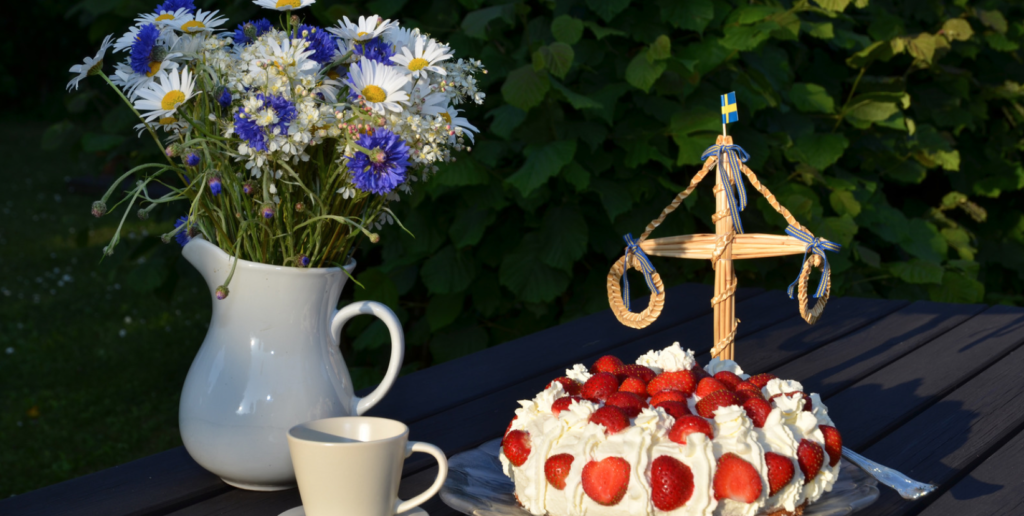
Midsummer, or “Midsommar” in Swedish, is one of the most important holidays in Sweden and is celebrated on a Friday between June 19th and 25th. It usually falls on the weekend closest to the summer solstice. It is a celebration of the summer season, and many Swedes consider it to be the start of the summer vacation period.
Midsummer is typically celebrated by spending time outdoors, often in the countryside or by the water. Traditional activities include raising and dancing around a maypole decorated with flowers and ribbons, picking flowers to make wreaths, and enjoying traditional foods such as herring, boiled potatoes, and strawberries with cream.
It is also common for families and friends to gather together for a traditional midsummer feast, which often includes grilled meats, salads, and other summer dishes. Many people also enjoy eating herring and drinking schnapps while singing traditional Swedish songs (snappsvisor).
In addition to traditional activities, midsummer celebrations often include games and activities for children, such as face painting, sack races, Kubb, and other outdoor games.
Midsummer is a beloved holiday in Sweden, and it is celebrated with great enthusiasm throughout the country. It reflects a deep connection to the natural world and a commitment to celebrating the changing seasons and the beauty of the Swedish countryside.
Swedish Christmas – Traditions, Decorations, Food & Markets to Visit
Swedish Food and Drinks

Swedish cuisine is known for its simplicity, freshness, and use of local ingredients. Here are some traditional Swedish food dishes:
- Meatballs (Köttbullar): Swedish meatballs are probably the most famous Swedish dish. They are made from a mixture of ground beef and pork and are typically served with lingonberry jam, boiled potatoes, and cream sauce.
- Gravlax: This is a type of cured salmon that is typically served as an appetizer. It is usually made by curing salmon in a mixture of salt, sugar, and dill. Soooo good!
- Jansson’s Temptation (Janssons Frestelse): This is a traditional Swedish casserole made with potatoes, onions, cream, and anchovies. It is typically served as a side dish.
- Crayfish (Kräftor): Crayfish is a popular Swedish delicacy that is typically eaten during late summer. They are usually boiled and then served cold with dill, bread, and cheese.
- Pea soup and pancakes (Ärtsoppa och pannkakor): This is a traditional Thursday dish in Sweden, and it is often served in schools and other institutions. The soup is made with yellow peas and is typically served with pancakes. Not my favorite, although the pancakes are good.
- Toast Skagen: This is a classic Swedish seafood dish made with shrimp, mayonnaise, sour cream, dill, and red onion. It is typically served on toast. This is very good.
- Cinnamon buns (Kanelbullar): These are a classic Swedish pastry, made with cinnamon, sugar, and butter. They are often served with coffee or tea and are a staple of fika culture in Sweden.
Overall, Swedish cuisine is characterized by its use of fresh, local ingredients and simple yet flavorful preparations.
Alcohol
In Sweden, the sale of alcohol is tightly controlled by the state-owned retail chain called Systembolaget. This means that alcoholic beverages with an alcohol content above 3.5% can only be purchased at Systembolaget stores, and these stores are the only authorized retailers of wine, beer, and spirits in Sweden.
To purchase alcohol at Systembolaget, you must be at least 20 years old. This applies to all types of alcoholic beverages, including beer and wine. When purchasing alcohol, you will be asked to show valid identification to confirm your age.
But, the legal drinking age is 18. So you can go to the bar and have a drink at 18, but not purchase it until you are 20.
The Swedish government has implemented these strict regulations on alcohol sales as a way to control alcohol consumption and reduce alcohol-related harm. Despite the tight regulations, Swedes still enjoy drinking alcohol, and beer and wine are popular beverages at social gatherings and celebrations.
Must-do Experiences to Try in Sweden
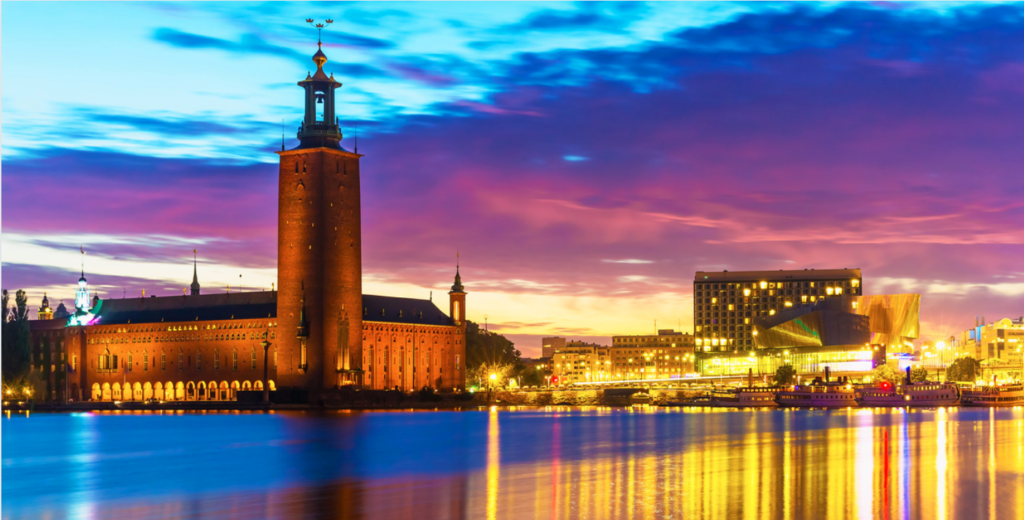
There are many unique experiences to have in Sweden, but here are some must-do activities that you should consider when visiting:
- Visit Stockholm: Stockholm, the capital of Sweden, is a beautiful city built on 14 islands. It is home to many museums, galleries, and historic sites, including the Vasa Museum, Skansen Open-Air Museum, and the Royal Palace. View Walking Tours in Stockholm, here!
- Explore Swedish nature: Sweden is home to many beautiful natural areas, including national parks, lakes, forests, and archipelagos. Take a hike, bike ride, or boat tour to experience the stunning landscapes.
- Go on a moose safari: Moose are a common sight in Sweden, and going on a moose safari is a unique way to see them in their natural habitat.
- Experience Swedish cuisine: As I mentioned earlier, Swedish cuisine is known for its simplicity and use of local ingredients. Try traditional dishes like meatballs, gravlax, and cinnamon buns, and be sure to enjoy fika, a traditional Swedish coffee break.
- Visit an ice hotel: Sweden is home to the world’s first ice hotel, located in Jukkasjärvi. The hotel is rebuilt every year using ice blocks from the nearby Torne River, and it offers a unique opportunity to sleep in a room made entirely of ice.
- Celebrate Midsummer: As we mentioned earlier, Midsummer is one of Sweden’s most important holidays and is celebrated with traditional activities like dancing around the maypole, picking flowers, and enjoying traditional foods.
Sweden offers a wide range of experiences and activities, from exploring the natural beauty of the country to experiencing the rich culture and traditions of its people.
Disclosure: This gives an overview of Swedes, this doesn’t mean that every Swedish person will fit into these boxes, but it rather gives a broad view of some common traits and behaviors.


